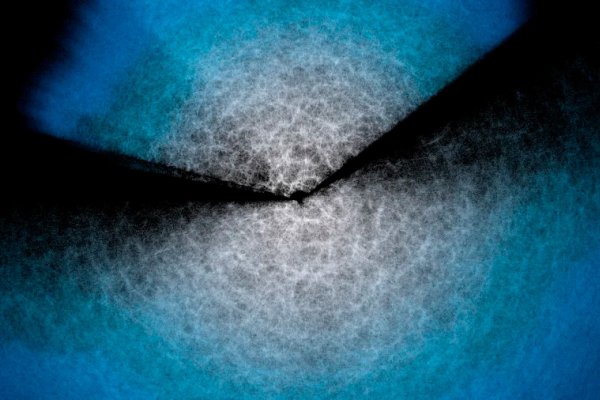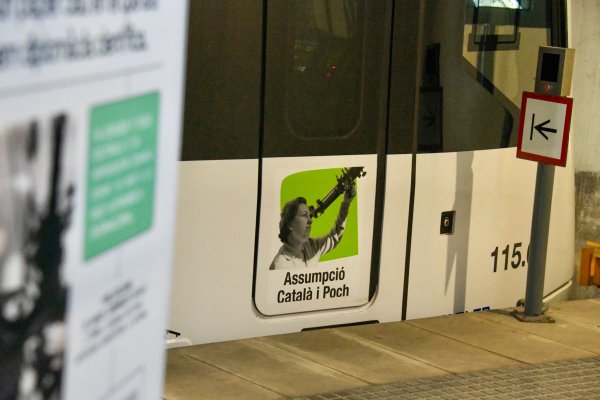The Dark Energy Spectroscopic Instrument (DESI) collaboration will receive the 2026 Lancelot M. Berkeley–New York Community Trust Prize for Meritorious Work in Astronomy. Researchers from the Institut de Ciències del Cosmos (ICCUB) participate in this experiment. The prestigious prize that it will now receive was established in 2011 by the American Astronomical Society (AAS) and includes a monetary award and an invitation to give the closing plenary lecture at the AAS winter meeting.
The DESI collaboration is being honored with the 2026 Berkeley prize for their work creating the largest 3D map of the universe, enabling the study of the effects of dark energy over cosmic time, and particularly for precise measurements of baryon acoustic oscillations as a function of redshift all the way to z = 2.3, when the universe was less than three billion years old.
Each year the three AAS Vice Presidents, in consultation with the Editor in Chief of the AAS journals, select the Berkeley prize winner for meritorious research published within the preceding 12 months. This year’s prize recognizes the DESI team for not one, but two articles in the past year. The first, published in February 2025 in the Journal of Cosmology and Astroparticle Physics, presents results from the measurement of baryon acoustic oscillations — a pattern of subtle variations in the density of baryonic matter imprinted by sound waves traveling through the early universe — based on data from the first year of DESI operations. The second, released by the collaboration in March 2025, encompasses the first three years of DESI operations, analyzing a sample of more than 14 million galaxies and quasars to test the leading cosmological model.
The observations not only constitute the largest 3D map of the Universe ever made, they also provide new insights into the nature of dark energy and the evolution of the Universe. When combined with other cosmological constraints, the DESI results provide strong hints that dark energy evolves over time, challenging our current leading model of the Universe, Lambda CDM.
The ICCUB has a strong involvement in the DESI collaboration. The institute has led the working group responsible for publishing the official DESI full-shape analysis of the Data Release 1, which has allowed for testing the theory of general relativity to an unprecedented level of precision. Furthermore, the blinding strategy of DESI, and the recently published bispectrum analysis of luminous red galaxies and quasars have been performed by researchers at the ICCUB.
"The institute is honoured to contribute to this collaboration that is producing the largest-ever 3D map of the Universe, and providing stringent tests of the standard model of cosmology”, says Licia Verde, ICCUB scientific director and ICREA researcher.
The Berkeley Prize will be accepted on behalf of the collaboration by Daniel Eisenstein, a member of the DESI Executive Committee and former DESI spokesperson. Eisenstein will give the prize lecture on 8 January 2026, at the Phoenix Convention Center in Phoenix, Arizona, USA.
The Dark Energy Spectroscopic Instrument Collaboration
DESI is supported by the DOE Office of Science and by the National Energy Research Scientific Computing Center, a DOE Office of Science national user facility. Additional support for DESI is provided by the U.S. National Science Foundation; the Science and Technology Facilities Council of the United Kingdom; the Gordon and Betty Moore Foundation; the Heising-Simons Foundation; the French Alternative Energies and Atomic Energy Commission (CEA); the National Council of Humanities, Sciences, and Technologies of Mexico; the Ministry of Science and Innovation of Spain; and by the DESI member institutions.
The DESI collaboration is honored to be permitted to conduct scientific research on I’oligam Du’ag (Kitt Peak), a mountain with particular significance to the Tohono O’odham Nation.
The spanish institutions that participate in DESI are the Centro de Investigaciones Energéticas, Medioambientales y Tecnológicas (CIEMAT), the Instituto de Ciencias del Espacio (ICE-CSIC/IEEC), the Institut de Ciències del Cosmos de la Universitat de Barcelona (ICCUB/IEEC), the Institut de Física d’Altes Energies (IFAE), the Instituto de Física Teórica (IFT-UAM/CSIC), the Instituto de Astrofísica de Andalucía (IAA) and the Instituto de Astrofísica de Canarias (IAC).
List of ICCUB's researchers in the DESI collaboration:
Licia Verde
Hector Gil Marín
Daniel Forero Sanchez
Sergi Novell Masot
Anya Paopiamsap
Emanuele Fondi
Adriana Nadal Matosas
Francisco Asensio Rivera



